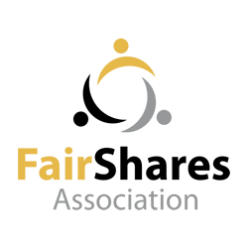
(First published 29/10/2013)
The FairShares Association has launched a petition to defend the Co-operative Bank against the loss of member-control.
With a history dating back to 1844, the Cooperative Group is under threat from US hedge funds because its banking subsidiary – The Co-operative Bank – has been forced to plug a £1.5 billion ‘shortfall’ in its capital reserves. The Co-operative Group traces its history directly to the Rochdale Pioneers – recognised by the International Co-operative Alliance (ICA) as the birthplace of the co-operative movement.
In the summer, the Co-operative Group put forward a proposal to hold 70% of shares in a restructured bank, with the other 30% held by bondholders. But the bondholders – led by New York hedge funds Silver Point and Aurelius Capital – have rejected the proposal. Under a new proposal, outside investors will take a 70% stake and reduce the Co‑operative Group’s stake to 30%.
Members Campaign
Members of the Co-operative Group have reacted strongly to the news. In the last 3 days, a campaign website and two petitions have been started. The main campaign is located at http://www.saveourbank.coop. Organised by Shaun Fensom – formerly of the Phone Coop – the campaign has the backing of Ethical Consumer Magazine. It aims to persuade the Co-operative Bank plc to retain its ethical banking policies and return to mutual ownership. If this fails, a ‘big switch’ to an alternative provider will occur.
Petitions
Two petitions support the campaign. The first is organised by Ian Chamberlain. It has targeted the ‘investor relations’ department at the Co‑operative Group by calling on bank customers to commit themselves to moving their accounts if the Co-operative Bank drops its ethical policies. The second is organised by the FairShares Association. It calls on Vince Cable (Secretary of State at the Department of Business, Industry and Skills) to exercise powers under Section 76 of the Companies Act and force the Co-operative Bank to change its name if it does not return control to the co‑operative movement within a fixed timeframe.
Expert Opinion
Ian Snaith, the UK’s leading expert of the co-operative law, points out:
- The new bank does not conform to the definition of a co-operative as a ‘jointly owned and democratically controlled enterprise” passed by the 1995 General Assembly of the ICA.
- Nor does it conform to Recommendation 193 on Co-operatives passed at the International Labour Organisation (ILO) in 2002.
- Nor does it conform to the 2003 regulations for a European Co-operative Society (Regulation No 1435/2003) which explicitly rejects control by outside investors.
- Nor is it consistent with a United Nations (UN) resolution in 2009 on co-operative development.
- Nor will it conform to FCA guidance on the governance of co-operatives because it deviates from the one-person, one-vote principles of co-operative governance.
Dr Rory Ridley-Duff, leader of the MSc Co-operative and Social Enterprise Management course at Sheffield Hallam University and co-founder of the FairShares Association, says “the Co-operative Group’s constitution includes a commitment to carry on ‘business as a co‑operative in accordance with Co-operative Values and Principles’ and to ensure that ‘the Society’s businesses and affairs are conducted in accordance with the Co-operative Group’s Purposes and Objects’.”
Even as a subsidiary company, the Co-operative Bank is bound by rules that oblige it to operate for the benefit of the Co-operative Group’s members. Under the control of US hedge funds, it is hard to see how it will do so.
As a result, the UK Financial Conduct Authority (FCA) may have to use its consumer protection powers to protect bank customers from being misled by the use of the word “co-operative” in the bank’s name. The UK Secretary of State for Business, Industry and Skills (Vince Cable) also has the power to force the Co-operative Bank to change its name on the grounds that it ‘misleads’ and ‘is likely to cause harm to the public’ by using the word ‘co-operative’ in its name.
As Shaun Fensom writes at saveourbank.coop: “the battle for who will have real control is on”.
The FairShares Association is a global network of educators, researchers, consultants and practitioners who support cooperative and mutual forms of social enterprise.
FairShares Association
4 Rosehill Close
Penistone
Sheffield
S36 6UF
Email: press@fairshares-association.com


